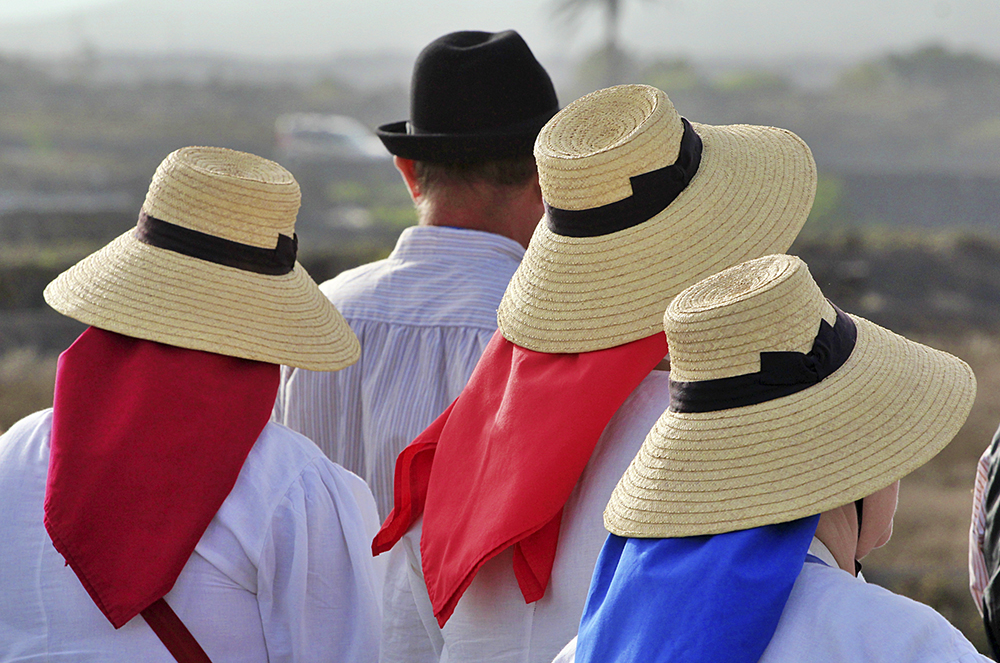
Speak local
Due to the geographical location of the Canary Islands in the Atlantic Ocean, 97 kilometers from Morocco and about 1,400 kilometers from the Iberian Peninsula, Lanzarote has always been a place of passage between South America, Europe and North Africa. This mix of cultures has made Canarians enjoy the benefits of the three continents: the good climate of North Africa, European comforts and a Spanish with its own accent, which is very easily recognized in the rest of the country and very similar to Spanish. Spanish spoken in countries like Cuba.
Some features of the Canarian accent are:
- Ceceo, seseo and yeismo.
- Confusion “r” and “l”: barcón for balcony.
- Aspiration of the “j”: cuaho by rennet.
- Aspiration of the “s” or assimilation to the following consonant: cojta for coast, il-la for island.
- Aspiration of the h: jablar for speaking.
- Assimilation of the r: canne for meat.
- I use you for you.
- Use of the simple past perfect for the compound: I came today for I have come today.
- Use of the verb to be as an auxiliary of intransitives: I am born in because I was born in.
- Use of the verb to have as personal: there were many for there were many.
- Lexicon: Guanche, Galician, Portuguese and Latin American terms.
Canarismos and local expressions
Canarians mostly use the pronoun ‘ustedes’ for the 2nd person plural, instead of the ‘vosotros’ of the Iberian Peninsula.
You will hear and read numerous canarismos in the menus.

